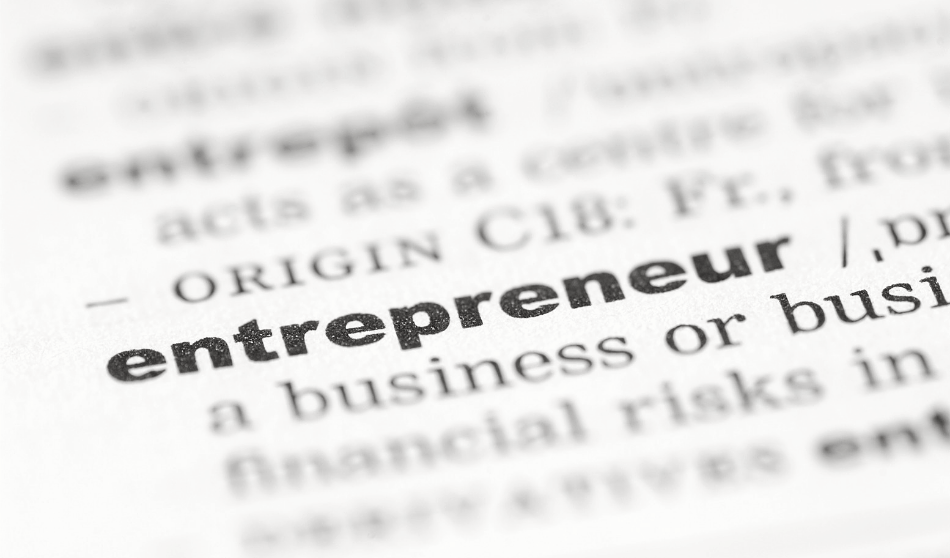What is The Entrepreneurial Mindset?

August 12, 2019 | By Mathew Waller
Contrary to what people might think, being an entrepreneur is not limited to creating the latest phone app, finding venture capital and starting a high-tech business in Silicon Valley – or even the Arkansas equivalent.
It’s a Mindset
Moreover, it’s a mindset that is not limited to business.
I talked about this on my Be Epic podcast with Sarah Goforth, adjunct professor in the Walton College and the director of outreach at the Office of Entrepreneurship and Innovation. Her insights and experience in entrepreneurial enterprises encompass the world.

“The entrepreneurial mindset is really the ability to look into the world – to look into your own life,” Goforth said. “And when you see problems, to become energized by them, rather than to be discouraged by them. Also, to cultivate within yourself the ability to surround yourself with the people, the knowledge, the tools to go out and tackle the problems, whatever they are. “You may do this within your own life as an individual; you may do it within your job as an innovator in a company or a nonprofit. And you may do it as this traditional type of project, meaning going out and starting a business venture. But I believe that the mindset is really relevant no matter who you are, and what your role in life is.”
I have seen from my dealings with Fortune 500 companies here in Northwest Arkansas and around the country that even the largest of them – think Walmart, Tyson Foods, J.B. Hunt Transport Services, Inc. and others – are interested in this entrepreneurial mindset. I found Goforth’s ideas about that fascinating and valuable.
“The world is just in a constant state of disruption,” she said. “The pace of technological change is faster than it perhaps has ever been. And that creates a lot of discomfort about the future for all companies – small companies, midsize companies and big companies.”
Goforth had examples at her fingertips of disruption at work in worlds outside of business. One was from a kickoff event for the Delta I-Fund – an early stage, proof-of-concept accelerator formed to train entrepreneurs in the eight-state Delta Regional Authority territory – Arkansas, Missouri, Illinois, Kentucky, Tennessee, Alabama, Mississippi and Louisiana.
“It was really exciting to me to see all of these people in the room – from big, industrial, mega-agriculture companies to individual family farmers – all looking at the disruption and seeing opportunity for economic development in the Delta,” she said. “Seeing opportunity for sustainability, seeing all these new tools at their disposal, and trying to figure out ‘How do I use these and make the world a better place?’”
Mixture of Passion
Goforth also has a passion for the synergy between basic research and science, including commercialization and the virtuous cycle that it creates.
“I’m a science communicator by training and have worked at places that passionately
defend the purpose of gathering knowledge for its own sake – knowledge with no commercial
outcome. I’ve had to question for myself, even, what is that value?” Goforth cited
a study that said 80 percent of the papers in the scientific literature that had been
cited just one time can be traced to a commercial outcome. “Even when you’re studying
as basic research the ways that the bacterial immune system works, for example, you
can’t predict what that outcome will be. But it’s critically important to have that
volume of knowledge,” she said.“
I believe that we within the university must connect the dots so that the body of
knowledge is connected to pathways for commercialization – when it makes sense,” she
said. “But we also have a very, very deep obligation to protect that army of foundation
builders.”
“There are many, many examples of technologies that began in a lab where someone
was just pursuing their fundamental curiosity. This is something that universities
uniquely cultivate,” Goforth said.
I’ve never heard anyone articulate that as well as she just did.
Let Us Ponder
I want to speculate for a moment about the role of business research and education in the technology commercialization process. Our efforts in the Walton College to advance and discriminate business knowledge are a vital part of the technology commercialization process. In some ways, you can think of business as a moderating variable in the technology commercialization process. When those involved in technology commercialization have team members with strong business knowledge, skills and capabilities, undoubtedly the probability of success is increased. Technology commercialization efforts from universities have a mixed record, and I believe the teams with the technology to be commercialized need more business savvy and a willingness to pivot and morph. The technology may need to change, or the use of the technology may need to change or both.
I’d love to hear your thoughts.

